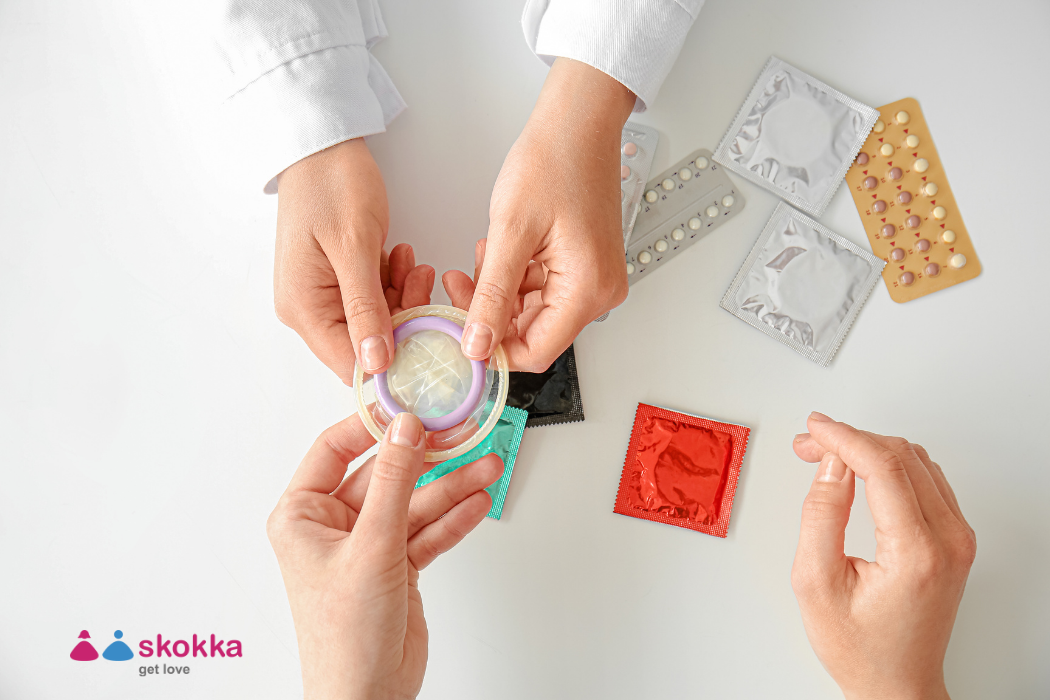When it comes to health, it’s essential to take care of every aspect. Do you usually concern yourself with your sexual well-being? If the answer is yes, then consider this: When was the last time you scheduled an appointment with a gynecologist or urologist and requested routine exams? In the past year, have you undergone a check-up with any specialists?
In pursuit of a long and, above all, healthy life, attention to sexual health is as crucial as any other measure. Beyond merely adopting diets or turning to diuretic juices to achieve the desired physique, or even keeping up with dentist and optometrist appointments, it is imperative to also take care of sexual health. Contrary to what some may think, this involves more than just practicing safe sex with a condom.

Care for sexual health within the context of overall health.
It is common to associate the topic with the use of condoms during sexual activity – a completely appropriate practice. However, the realm of sexual health is broad, encompassing various other measures necessary for the preservation of your body. Among the primary measures are preventive care. These involve undergoing specific and comprehensive exams to detect sexually transmitted infections and hormonal imbalances.
Sexual activity is a beneficial practice that provides a series of advantages to the human body and mind. Improved blood circulation, increased immunity, or better sleep quality are some of its benefits. Therefore, it deserves your attention to make it a pleasurable and safe activity. In light of this, it is essential to regularly consult a specialized professional (gynecologist for women and urologist for men) and request relevant routine exams.
However, do you know what those exams are? Keep reading to find out.
Essential exams for sexual health.
Undergoing exams with the aim of identifying sexually transmitted infections (STIs) should not be limited only to situations where you forget to use condoms. Many diseases do not present symptoms in the early stages, meaning your sexual health may be compromised even if your body does not show obvious symptoms. Therefore, you must pay attention to your body’s signals.
In the case of women, if there are vaginal bleeding outside the menstrual period, abnormal discharge, discomfort during sexual intercourse, or a decrease in libido, it is imperative to seek specialized guidance urgently.
It is important to maintain the habit of regularly consulting a specialized doctor and requesting the main exams for the early detection of any STIs you may have contracted.

In case of doubt about which exams are appropriate, we list the most relevant ones below.
HIV: The HIV virus can be identified through the anti-HIV test, which checks for the presence of antibodies in the blood.
Syphilis: Various exams help detect syphilis, with the blood test being the most important, as it indicates the presence of antibodies against the bacteria.
HPV: This STI can be identified through routine exams, such as Pap smears, colposcopy, and vulvoscopy for women, and peniscopy or anoscopy for men.
Chlamydia: This is one of the STIs where most people do not show symptoms. Therefore, identifying the disease requires periodic serology and PCR tests in urine.
Hepatitis B: Regardless of symptoms, it is recommended to request a blood test from the doctor to check for infection with the hepatitis B virus.
Do not postpone the consultation with the specialist.
Early diagnosis can be an ally in the fight against any STIs identified in your body. Therefore, it is advisable to visit the doctor at least once a year, even if you do not have apparent symptoms. If you notice any atypical behavior in your body, do not hesitate to schedule an appointment immediately to identify the cause of the symptoms as soon as possible.
If you have had unprotected sexual intercourse, it is recommended to wait 48 hours before scheduling the exam, as the virus or bacteria may not be detectable before that period. Do not neglect your health! Regularly consult a doctor, understand your body, and, above all, use condoms.
No value can replace your well-being and health. Remember: Skokka is here to be your travel companion, guiding you towards a horizon of success, satisfaction, and SAFETY. Log in to Skokka and start building your story today. After all, the stage is yours, and the audience is ready.







Key Strategies for the Prevention of Sexually Transmitted Infections (STIs). - Skokka Official Blog
29 December 2023 at 9:04
[…] the importance of preventing Sexually Transmitted Infections is a crucial step in preserving your sexual health and overall well-being. Stay informed about prevention methods, such as condom use, regular screenings, and appropriate […]